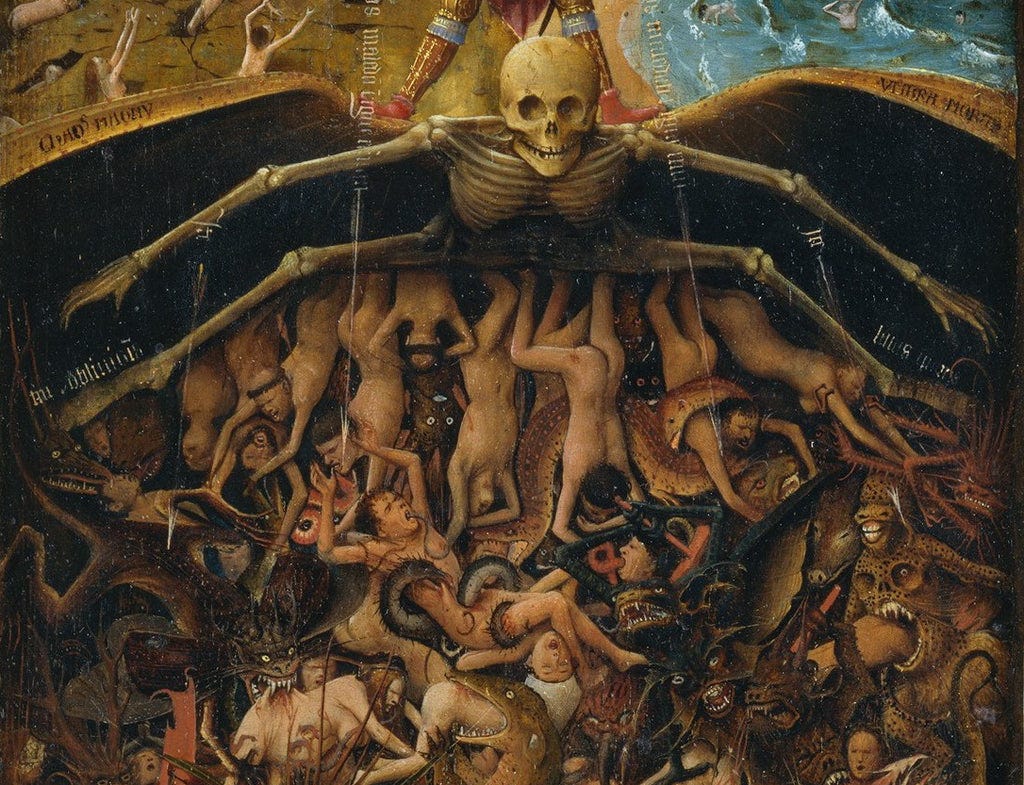The New Dark Enlightenment Age
Where Trump new administration come from and where is it taking us.

The Citadel has crumbled. In 2016, Donald Trump’s unexpected victory rattled the political establishment. Now, with Trump 2.0, we are entering the age of the Dark Enlightenment. Reactionary ideology is gaining ground and challenging long-held Enlightenment values. This shift could reshape the global political and philosophical landscape, profoundly affecting societies in the US and around the world.
What Is the Dark Enlightenment?
The “Dark Enlightenment,” sometimes called the neo-reactionary movement, describes a growing strain of thought critical of liberal democratic ideals. One of the key proponents of the movement, Curtis Yarvin, first outlined these ideas in blog posts throughout the 2010s, critiquing democracy as a failed system. The term Dark Enlightenment was later popularized in a 2012 essay by British philosopher Nick Land, who combined Yarvin’s ideas with his own accelerationist perspectives1.
Fueled by cultural anxieties over globalization, multiculturalism, and the rapid pace of technological change, this neo-reactionary movement gained momentum by questioning Enlightenment-era ideals, such as reason, progress, and universal human rights. It argues that liberal democracy is an inadequate system for addressing contemporary problems and is fundamentally incompatible with true freedom. Advocates of the Dark Enlightenment propose alternative governance models that reject egalitarianism, oppose globalism, and promote a return to authoritarianism and social order.
Dark Enlightenment = Conservatives + Libertarians
The triumph of the Dark Enlightenment has only been possible thanks to an unconventional and circumstantial alliance: conservatives and libertarians in the U.S. Shaken by Barack Obama’ election,2 conservative leadership, including Steve Bannon (former Chief Strategist in the former Trump administration) realized that to regain power, they needed to mobilize a broader tech-savvy base through new narratives and innovative (and sometimes (dis)informational) channels.
Conversely, libertarians understood they would never get to power through elections. Their best bet is to form alliances with a traditional party capable of ascending to power. Prominent libertarians among the 1%, such as Peter Thiel, found in Curtis Yarvin and Nick Land’s ideas something they can relate to intimately and thus, an acceptable compromise. Yarvin, often referred to as Thiel’s “house political philosopher,” became a key figure in shaping this new Conservatives + Libertarians covenant.
Thiel himself, a long-time collaborator of Elon Musk (another libertarian), was one of Trump’s earliest backers. He was also the one connecting Trump with JD Vance, now U.S. Vice President and a close associate of Yarvin.
Ultimately, libertarians provided the intellectual framework, narrative, connections, platform, and resources to fund a conservative push to power. They found in Donald Trump the ideal figure to embody their vision of the first “neocameralist3 president”, a leader resembling a CEO managing a corporation.
The Death of Liberal Democracy
This alliance and the rise of the Dark Enlightenment carry critical implications. Perhaps the most dramatic of all is the end of liberal democracy as the horizon of political evolution and the final form of human government, as once proclaimed by American political theorist Francis Fukuyama4. In this sense, the Dark Enlightenment era marks the true “end of the end of history.”5
This ideological shift is subtle but powerful. As neo-reactionary values permeate mainstream culture, they gradually become invisible, woven into the social and political fabric. We can expect a retreat from globalization, a weakening of democratic institutions, and an erosion of the rights these systems once championed.
Incidentally, this normalization flips the narrative, placing the burden of proof on those defending the democratic order, and making the promotion of liberal democracy seem increasingly radical.
Fringe Ideas Welcome
This reactionary turn may also push previously fringe ideas into the political mainstream. From abolishing federal agencies, like the Department of Education, to exploring denaturalization policies or withdrawing social benefits, the Overton window widens for policies once deemed unthinkable.
History has shown that these kinds of “political experiments” often lead to lasting social consequences, particularly for marginalized communities. For instance, the “Chicago Boys’” neoliberal policies in Chile drastically reshaped the nation’s economy and societal fabric, leaving deep inequalities that persist to this day6. Similarly, while Ronald Reagan’s neoliberal reforms in the United States promised a trickle-down effect, issues such as homelessness have hardly abated7. Advocates of the Dark Enlightenment propose more extreme solutions, which could produce similarly far-reaching impacts—both intentional and unintended.
Furthermore, ideological movements tend to grow bolder as they expand their influence. As these fringe experiments take hold, the ideology itself will grow more extreme. The more ideological terrain it annexes, the more it seeks to expand—its appetite for dominance is insatiable until it becomes the new mainstream. The new Citadel.
A Global Neo-Reactionary Alliance
The Dark Enlightenment is not confined to the United States. Similar patterns of rising authoritarian, nationalist, and anti-liberal-democratic sentiment appear elsewhere8 notably in China, India, Russia, and most recently Argentina. Key thinkers, like the Russian philosopher Alexandre Dugin, offer a distinct but related critique of Western liberalism, favoring a nationalist, traditionalist order that resonates with those disenchanted by globalist frameworks.9
Trump’s victory emboldens this worldwide movement. It provides ideological licenses to governments and individuals to challenge globalism and adopt more authoritarian and nationalistic stances.
Ironically, with the spread of this ideology, the U.S. reasserts its influence on global political philosophy by championing a post-liberal world order. Elon Musk meddling in European politics hints towards a future where the US is a net exporter of neo-reactionary ideals and systems.
A Dark Horizon
Trump’s second ascent to power signifies a global pivot toward illiberalism. Not only will this have transformative consequences within the U.S. it will also galvanize the reactionary movement internationally. This ideological shift holds dramatic implications for institutions, people, and the planet.
For better or worse, we are already in the new dark ages. The question now is how will we confront it.
Land, Nick. The Dark Enlightenment. Urbanomic, 2013.
Coates, Ta-Nehisi. We Were Eight Years in Power: An American Tragedy. One World, 2017.
Neocameralism is a political philosophy that wants to imagine states as corporate entities led by a President-CEO, focusing on maximizing efficiency and stability. Popularized by Curtis Yarvin, it is a central part of the Dark Enlightenment creed
Francis Fukuyama, The End of History and the Last Man, Free Press, 1992
Hochuli, Alex, and George Hoare. The End of the End of History: Politics in the Twenty-First Century. Zero Books, 2021
Edwards, Sebastian. The Chile Project: The Story of the Chicago Boys and the Downfall of Neoliberalism. Princeton University Press, 2023.
Hartmann, Thom. The Hidden History of Neoliberalism: How Reaganism Gutted America and How to Restore Its Greatness. Berrett-Koehler Publishers, 2022.
Gray, John. The New Leviathans: Thoughts after Liberalism. Allen Lane, 2023.
Alexandre Dugin, The Fourth Political Theory, Arktos, 2012.

